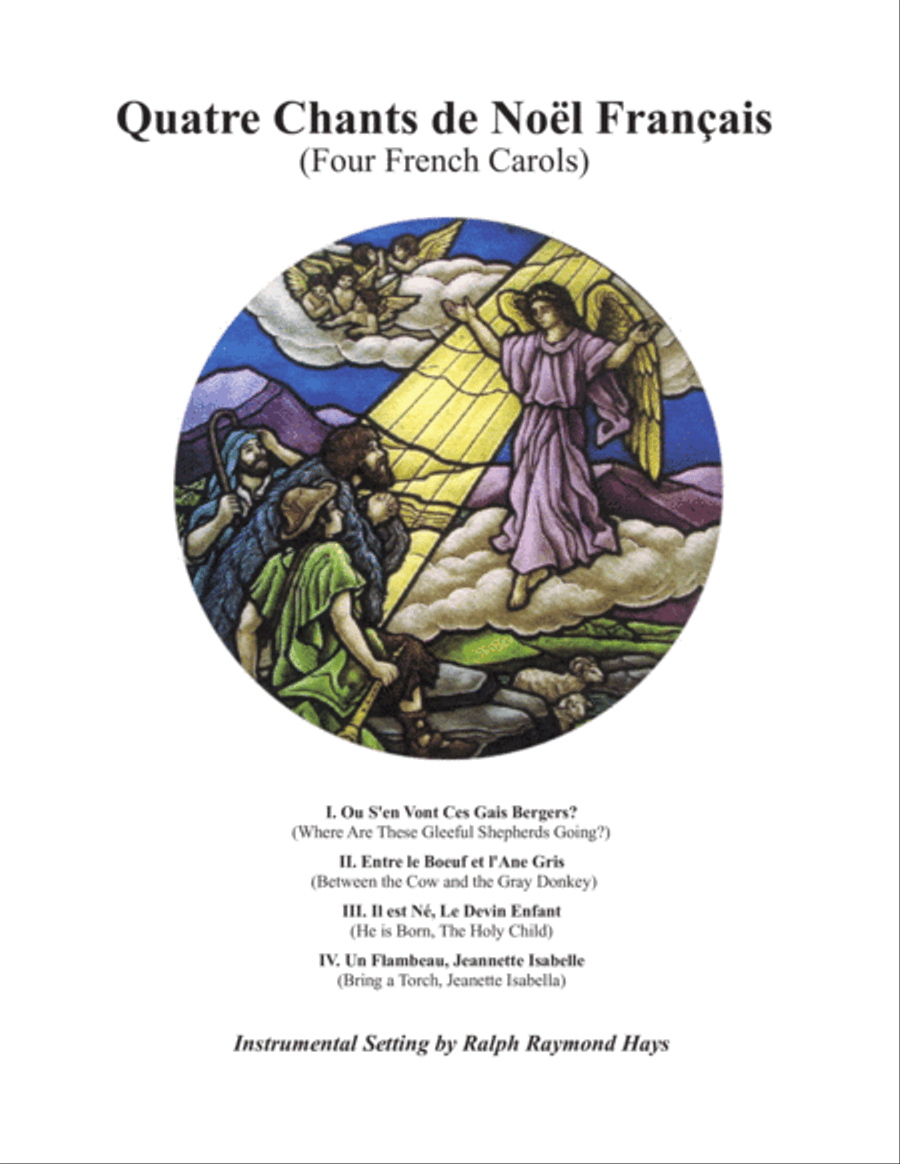Saxophone Quartet,Woodwind Ensemble Alto Saxophone,Baritone Saxophone,Soprano Saxophone - Digital Download SKU: A0.720437 Composed by Traditional. Arranged by Ralph Raymond Hays. Christmas,Classical,Multicultural,Standards,World. 32 pages. Ralph Raymond Hays #3377347. Published by Ralph Raymond Hays (A0.720437). This exquisitely crafted instrumental setting of familiar and lesser known French Carols will provide a unique addition to the repertoire of an accomplished ensemble. The first movement, Ou S'en Vont Ces Gais Bergers? (Where Are These Gleeful Shepherds Going?) is based upon a tune attributed to Marc-Antoine Charpentier and brilliantly showcases the timbral palette of the saxophone quartet. The second movement, Entre le Boeuf et l'Ane Gris (Between the Cow and the Gray Donkey) is somber and deeply moving. The third movement, Il est Né, Le Devin Enfant (He is Born, The Holy Child) is a familiar tune enhanced wth masterful Baroque style counterpoint. The third movement, Un Flambeau, Jeannette Isabelle (Bring a Torch, Jeanette Isabella) is given fresh exuberance with asymmetric meter reminiscent of works by David Brubeck.
